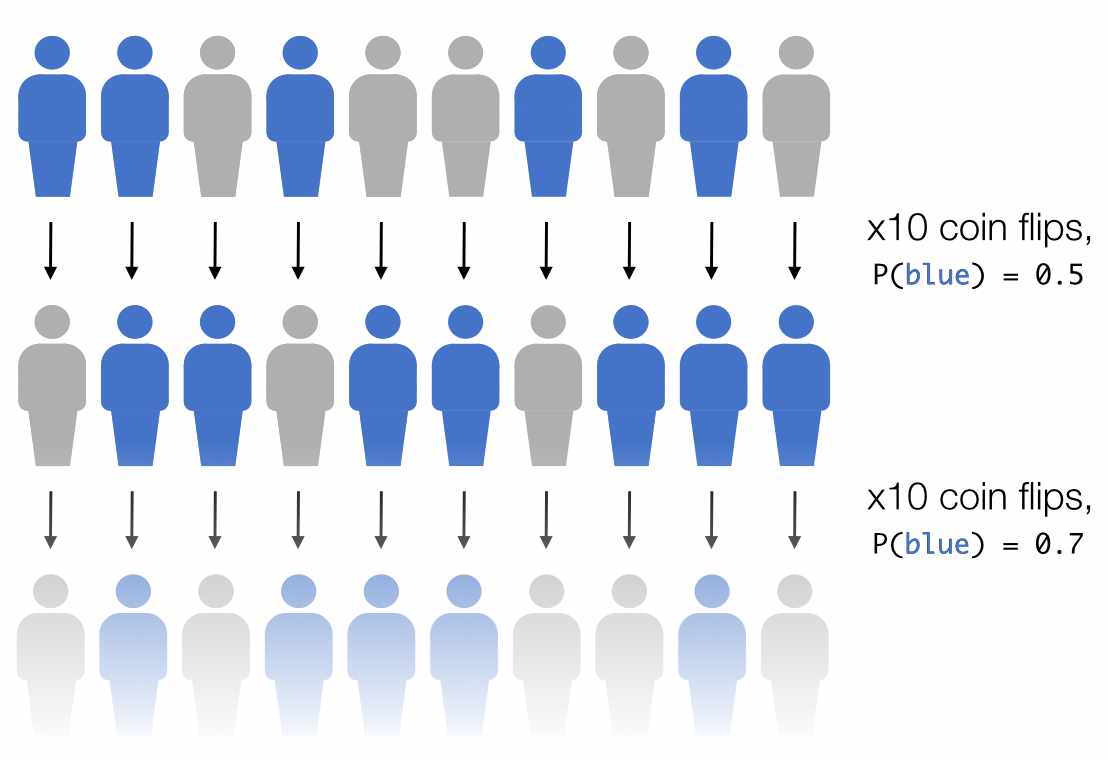5.4 Modeling allele frequencies
In the Wright-Fisher model, we track a population over the course of many generations. Within each generation:
- For every individual, we perform a coin flip to determine whether or not they have the allele.
- Unlike a coin, the probability of receiving an allele is equal to its allele frequency in the current generation.
- The more common an allele is in this generation, the more likely it is that someone in the next generation will also carry it.
After flipping these coins, we know the number of people in the next generation who carry the allele.

Fig. 3. Every individual flips a weighted coin to determine whether they will carry the blue allele in the next generation. The probability of carrying the allele is equal to the allele’s frequency in the current generation.